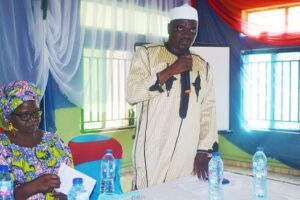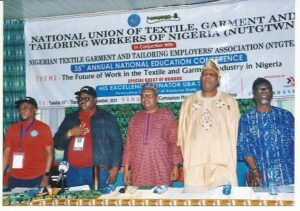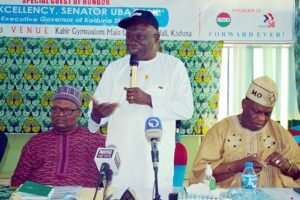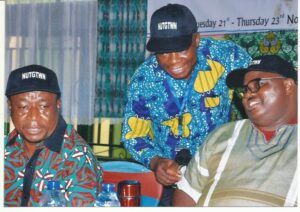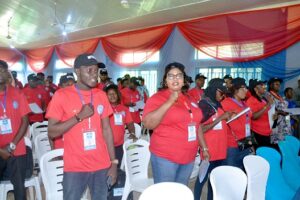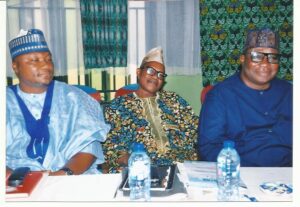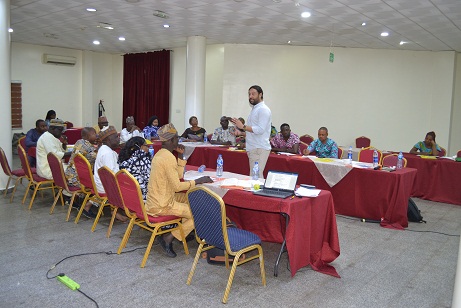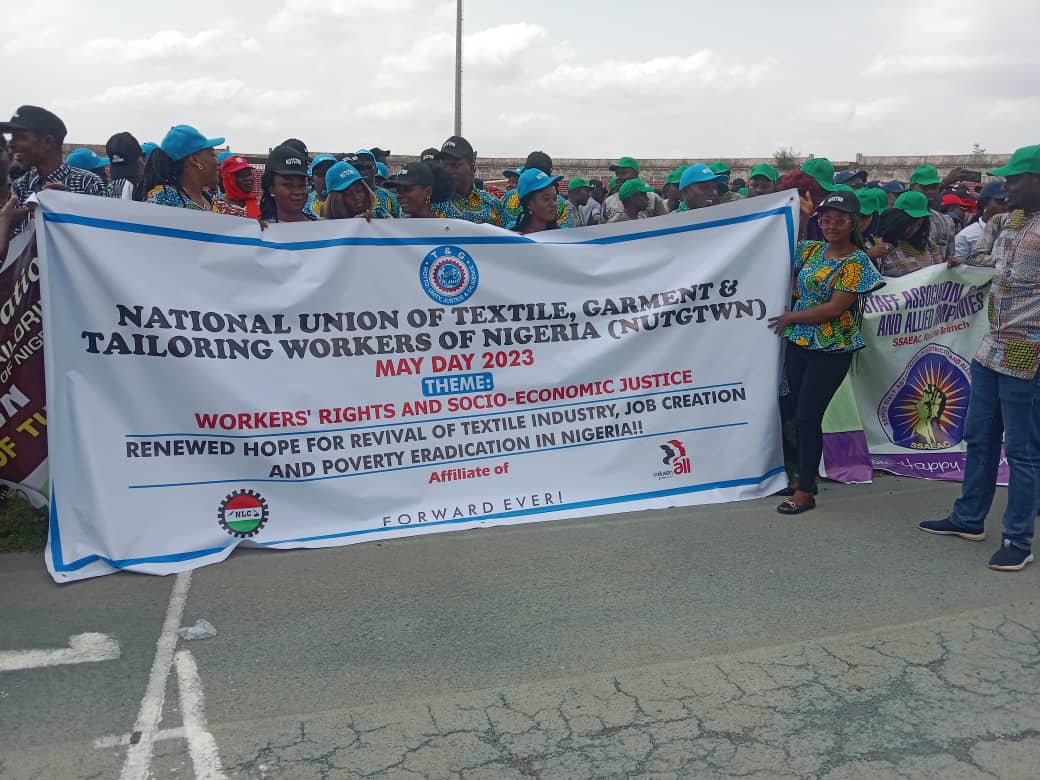
In a significant move towards reshaping the Nigerian textile and garment industry, the 35th Annual National Education Conference was concluded yesterday at Kabir Gymnasium Hall, Kaduna, Nigeria, drawing industry leaders, policymakers, and academic experts to discuss “The Future of Work in the Nigeria Textile and Garment Industry” with a focus on the sub-theme, “Innovations and the Fashion Industry in Nigeria.”
The conference, organized by National Union of Textile Garment and Tailoring Workers of Nigeria marked a pivotal moment for stakeholders to address the challenges and opportunities in one of Nigeria’s most culturally rich and economically significant sectors.
The conference kicked off with a keynote speech from Hon. Adamu Samaila, Special Adviser on Labour matters to the Governor of Kaduna State who represented the Governor His Excellency Senator Uba Sani. He emphasized the critical need for technological integration in Nigeria’s textile manufacturing.
He noted that the theme of the conference “The future of Work in the Textile and Garment industry in Nigeria” with the sub-theme “Innovation and the Fashion Industry in Nigeria’’ is quite apt and timely considering the prevailing changes which do not involve government policies only but also in technology and fashion tastes and sense.
While other sectors may be vastly worried about the security and future of their jobs due to the development and deployment of Artificial Intelligence (AI), the textile sector may not be left out but it has minimal threat level because it will take rare wisdom beyond the ordinary to have AI sew clothes, pick cottons or conceive the ideas of fashion taste and sense. He therefore advised to key into advantages and opportunities of technology which can bring to life the ever-present creative thoughts and ideas waiting to burst forth. Hon. Adamu Samaila Stated.
Another highlight was the powerful address on Future of Work by Comrade John Odah, mni, Executive Secretary, OTUWA; Represented by Comrade Precious Mbat, he noted that climate change is inevitable but it is important to discuss beyond its negative effect as there are also opportunities that come with it and can be maximize through innovation as there is need to embrace the realities of the new world of work.
He further suggested that there is need for workers’ skilling and reskilling due to brain drain in the industry. He also stated that the Africa Continental Free Trade Area (AFCFTA) agreement should be considered due to its potential for textile industry but substandard products shouldn’t be allowed and interest of workers should be covered within the agreement which should include respect of gender and disability issues, priority should be given to continuous research, strategic partnership and investment on technology for efficient production.
Lastly she noted that, the future of work is already here and greatly depends on education, hence there is need for a clear and strategic industrial policy that aid innovation, creates the right atmosphere for economic development and promotes decent work for textiles workers in more sustainable ways.
Panel discussions brought forth insightful dialogues, particularly the future of work in the Textile and Garment Industry in Nigeria. This segment highlighted some of the main factors responsible for the decline and near-total collapse of the Textile Sub-sector and factors Influencing the Future of Work in the textile industry which he regarded as Global drivers impacting the future of work in the Cotton Textile and Garment (CTG) Industry in Nigeria.
A significant focus of the conference was education and skill development. Experts called for urgent reforms in the educational curriculum to include modern technologies and sustainable practices, aligning with industry needs. The panel on “Promoting a Skills-Based Education System in Nigeria for the Future Workforce” outlined strategies for collaborations between academic institutions and the industry to enhance skill sets.
The event also featured interactive workshops on technology which introduced participants to the applications of Artificial Intelligence (AI) and machine learning in design, production and digital marketing strategies in fashion offered practical insights and skills to participants.
An exhibition area showcased the creativity and innovation within the Nigerian fashion scene, with displays of cutting-edge designs and sustainable fashion pieces from emerging designers.
The conference concluded with a call to action, urging stakeholders to invest in technology, advocate for sustainable practices, and push for educational reforms. A proposed sustainability charter and policy brief aimed at supporting the Nigerian textile and garment industry marked the key outcomes of the event.
As the conference wrapped up, the President of the union, Comrade John Adaji lamented on the continuous closure of many textile factories which is worrisome, because the cotton, textile and garment sub-sector of the economy which used to be the second largest employer of labour after the public sector is on steady decline due to company closures and massive loss of jobs. Massive and indiscriminate importation of textile products has become the order of the day.
He added that Kaduna Textile Limited (KTL) KTL was a product of Northern regional government-led Industrialization drive but the company has remained under lock and key since 2002 and the benefits of workers yet to be paid. He appeal to the conscience of the 19 northern governors to share within themselves the over 600 million owed and pay the workers entitlement/benefits.
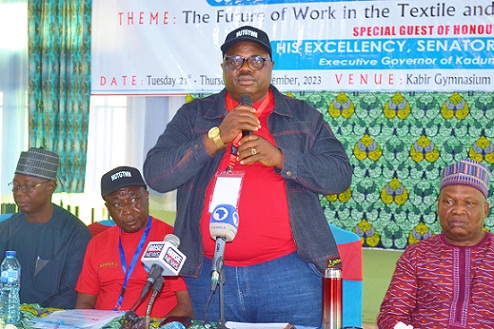
He therefore called on the Federal Government to take drastic steps to save the textile sector through tightening up of the nation’s borders by the Nigeria Customs Service, increase in import duties for finished textile products, granting of tax waivers to local industries, provision of adequate infrastructure especially energy, availability of forex to import raw materials among other measures and develop a comprehensive strategy to fully optimize the benefits of the Africa Continental Free Trade Area (AfCFTA) Agreement with necessary safeguards in place to prevent and apprehend unfair trading practices such as smuggling and dumping.
He also urged the government at all levels to direct their procurement policies towards patronage of Made in Nigeria Textile fabrics in line with the Executive Order of the previous administration and ensure implementation because there is a huge gap between policy pronouncement and actual policy implementation.

